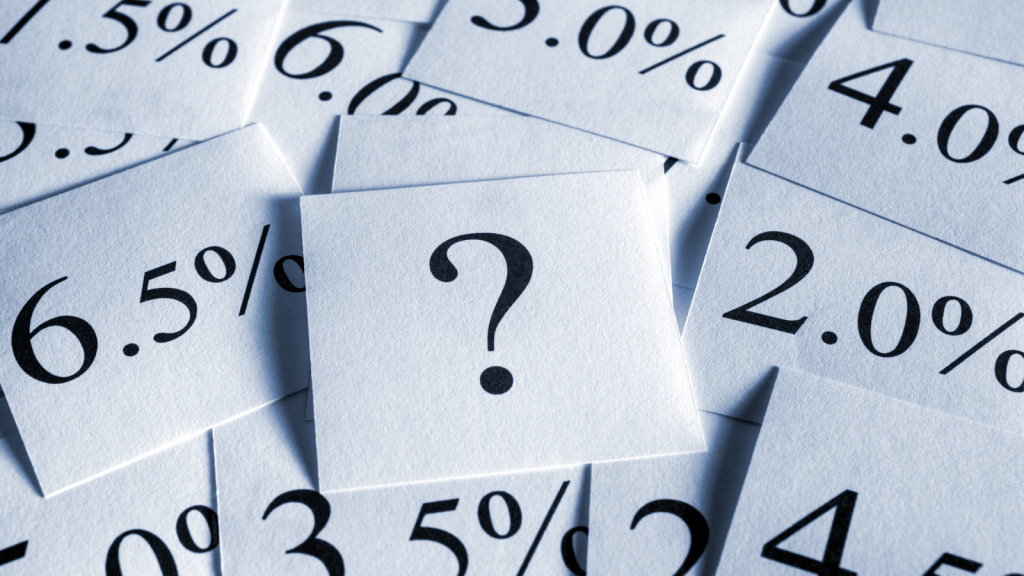Core CPI rose 0.3% in August versus July. While the increase was slightly higher than the 0.2% monthly gain in core CPI in July, it was still relatively tame. And if you annualize the combined July and August increases, you come up with 3%. While that’s above the Fed’s nominal 2% inflation target, 3% inflation is not very high historically. This environment has led to the rise of stocks to buy now.
Also noteworthy is that the labor market has shown signs of loosening recently, while the Fed is widely expected to refrain from raising rates later this week and a number of its members have suggested that it could be done raising rates for the foreseeable future.
Moreover, I believe that the central bank wants to cut rates to ease the burden on banks holding large amounts of bonds, make it easier for the federal government to deal with its huge debt, and avoid being seen as influencing the 2024 elections with high rates. Given all of these points, I expect the Fed to cut rates by April 2024.
Here are three stocks to buy that will be boosted by lower rates.
Western Alliance (WAL)

Unlike many other regional banks, Arizona-based Western Alliance (NYSE:WAL) does not have a huge amount of U.S. Treasury bonds, as Treasuries only account for 3.3% of its total assets. That’s good, for the bank since the value of Treasuries has plunged due to the surge of interest rates (The rates and prices of each bond move in opposite directions by the same amount).
However, WAL does have large amounts of other bonds whose value would rise tremendously if rates are cut. For example, it holds corporate bonds whose value as of the end of last quarter was equal to 12.9% of its total liabilities. And if the value of the bank’s bond rises, investors would be less worried about its solvency, causing WAL stock to climb,
But, in line with my previous assessments, Western Alliance is actually doing quite well. In fact, investment bank Piper Sandler recently reiterated an “overweight” rating on its shares, calling WAL “a top-performing institution with industry-leading returns, relative market strength, and a sophisticated management team,” Piper also believes that WAL stock is undervalued.
Given Western Alliance’s strong business and low valuation, along with the fact that it will be helped by the coming rate cuts, it’s one of the best bank stocks to buy.
Toll Brothers (TOL)

Toll Brothers (NYSE:TOL) is one of America’s largest homebuilders. Builders of residential homes benefit from interest rate declines because lower rates make it cheaper for consumers to buy homes. So TOL stock will get a big boost from future rate cuts by the Fed.
Meanwhile, the company’s business is already performing well as “its home sales revenue climbed 19% year-over-year to $2.7 billion.” Further, TOL “raised its delivery guidance for its current fiscal year to 9,500 to 9,600 from 8,900 to 9,500 previously.”
In July, investment bank Raymond James raised its rating on TOL stock to “strong buy” from “outperform” and hiked its price target on the shares to $100 from $77, As reasons for the upgrade, the bank cited “pent-up demand for single-family homes” and “builders’ de-risked operating models.”
TOL stock has a very low forward price-earnings ratio of 7.2, indicating that future Fed rate cuts are not reflected in its share price and making it one of the best stocks to buy today.
Carvana (CVNA)

Carvana (NYSE:CVNA) sells used vehicles. Sellers of autos benefit from interest rate declines because lower rates make it cheaper for consumers to buy autos.
Earlier this month, Seeking Alpha reported that the production of used vehicles is still not keeping pace with the demand for them. Therefore, Carvana should benefit from continued high prices for the used vehicles that it sells.
Also noteworthy is that, after Carvana “reached a debt restructuring agreement with most of its bondholders,” the company reported that it had “reduced its near-term interest payments by over $455 million per year for the next two years.” And S&P responded to the news by raising its rating on the company’s senior unsecured debt to CCC- from D.
CVNA has a very low trailing price-sales ratio of 0.5, indicating that future Fed rate cuts are not reflected in its share price.
On the date of publication, Larry Ramer did not hold (either directly or indirectly) any positions in the securities mentioned in this article. The opinions expressed in this article are those of the writer, subject to the InvestorPlace.com Publishing Guidelines.
